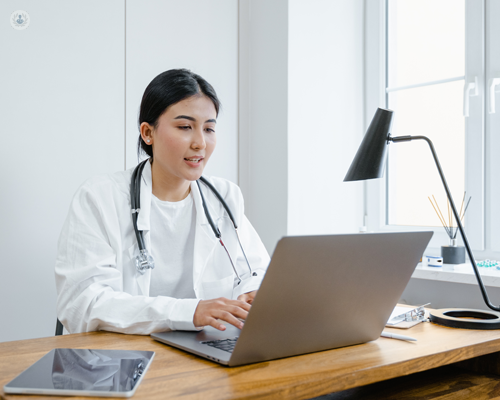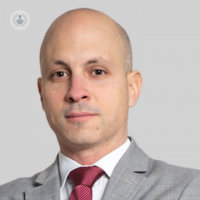A hard pill to swallow? All you need to know about capsule endoscopy
Written by:Those looking to avoid invasive surgery to diagnose small or large bowel conditions can opt for capsule endoscopy, which takes images of your gut and provides essential information for doctors.
Here to explain further about this fascinating and useful innovation is respected consultant gastroenterologist Dr Alberto Murino.

Which conditions can it check for?
Capsule endoscopy is used to investigate the small bowel or suspected small bowel disease, including Crohn's disease, polyps in the small bowel, suspected adenocarcinoma or lymphoma of the small bowel, or the main indication for the small bowel is obscure gastrointestinal (GI) bleeding.
For the colon, capsule endoscopy is used mostly as an alternative to colonoscopy. So for those patients that wish to avoid an invasive endoscopy procedure, to investigate the colon, meaning a colonoscopy, we use capsule endoscopy.
How does it compare to regular endoscopy?
Of course, capsule endoscopy, being a small capsule, it's minimally invasive. So the patient can avoid an invasive procedure and, what happens is; the patient comes to the hospital after a bowel preparation. They swallow the capsule with the camera, and the capsule travels through to the gut. It will take approximately twelve hours. The patient has a little recorder with them, which the capsule transmits the images to the recorder. The day after the procedure, the patient brings the recorder to the hospital and we download the images onto the computer. With the special software, we create a video which I will review.
After a few hours of being the hospital, after the capsule is ingested, the patient is free to go home or do their normal daily routine. There's no need for any sedation and they can come to their appointment alone.
What are the disadvantages or risks of capsule endoscopy?
Capsule endoscopy is a very safe procedure. There are two main risks; one is capsule retention, so if there's any stricture, meaning a narrowing of the gut, the capsule can get stuck. In order to avoid this risk, we usually give a patency capsule before the procedure, which is a dummy capsule. If it gets stuck, it disintegrates after three days. It alerts us [if any blockages exist].
The other risk is aspiration, meaning that when you swallow the capsule the capsule might go into the airways and the risk of retention is one per cent, which is very low. The risk of aspiration is mainly present in elderly patients or a patient with swallowing difficulties. So, in a person with no swallowing problem, it's very unlikely that the capsule will aspirate.
What happens after the procedure?
After the procedure, once we've reviewed the capsule and it usually happens a day, or two days afterwards, when the video is ready, I'll organise the follow-up consultation with the patient to discuss the results.
Sometime the capsule might highlight some abnormalities, either in the small bowel or in the colon which respectively may require an enteroscopy or a colonoscopy.
If you'd like to discover with Dr Murino just how capsule endoscopy can work for you, arrange a consultation with this leading gastroenterologist via his Top Doctors profile.


